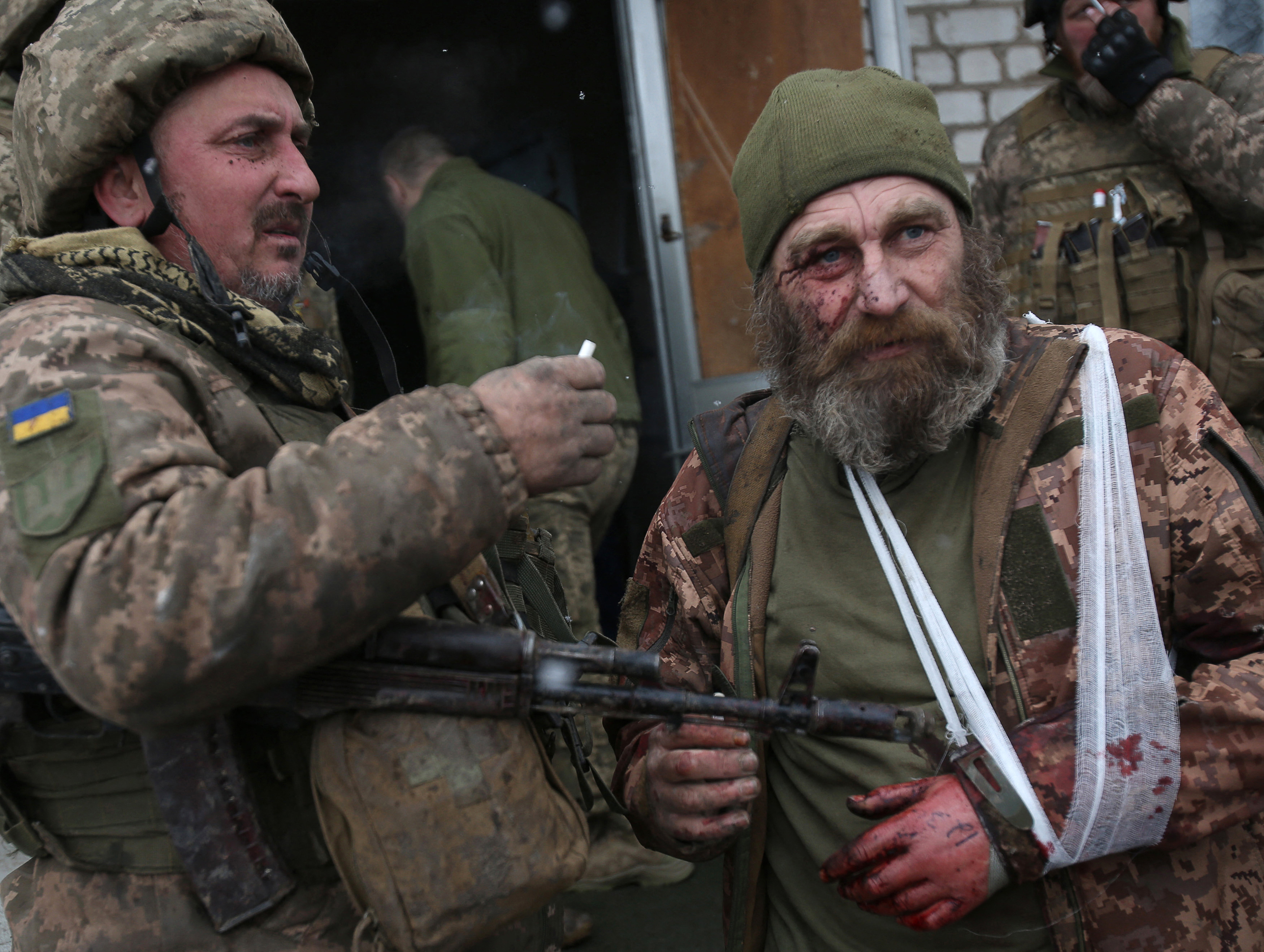
Lviv, Ukraine – Vladyslav’s patience is wearing thin. It has been six months since the 29-year-old was admitted to a hospital in the western Ukrainian city of Lviv. His legs are immobilised, he can only move his arms with difficulty, and he is simmering with frustration at his inability to be back at the front.
“Imagine, I’ve been here since March and I cannot walk,” he says with exasperation.
Affable and full of wisecracks, Vladyslav cuts an imposing figure even while lying on a couch for his physiotherapy session.
“Everybody thinks you can be prepared for war, but it doesn’t work this way. You just do it. You just act,” he says.
A tank driver in active service in the Ukrainian armed forces since 2009, Vladyslav* was heavily wounded on March 2 in Chernihiv, northern Ukraine. “They failed to capture Chernihiv, so they just tried to destroy it completely,” Vladyslav says.
A missile fell close to the tank he was in, causing serious trauma to his brain. The doctors who rushed to save his life extracted multiple pieces of shrapnel from his head.
As he speaks, Vladyslav’s left leg jerks intermittently – a grim reminder of the serious damage done to his nervous system. Later, he was transferred to a hospital in Lviv that treats a large proportion of soldiers.
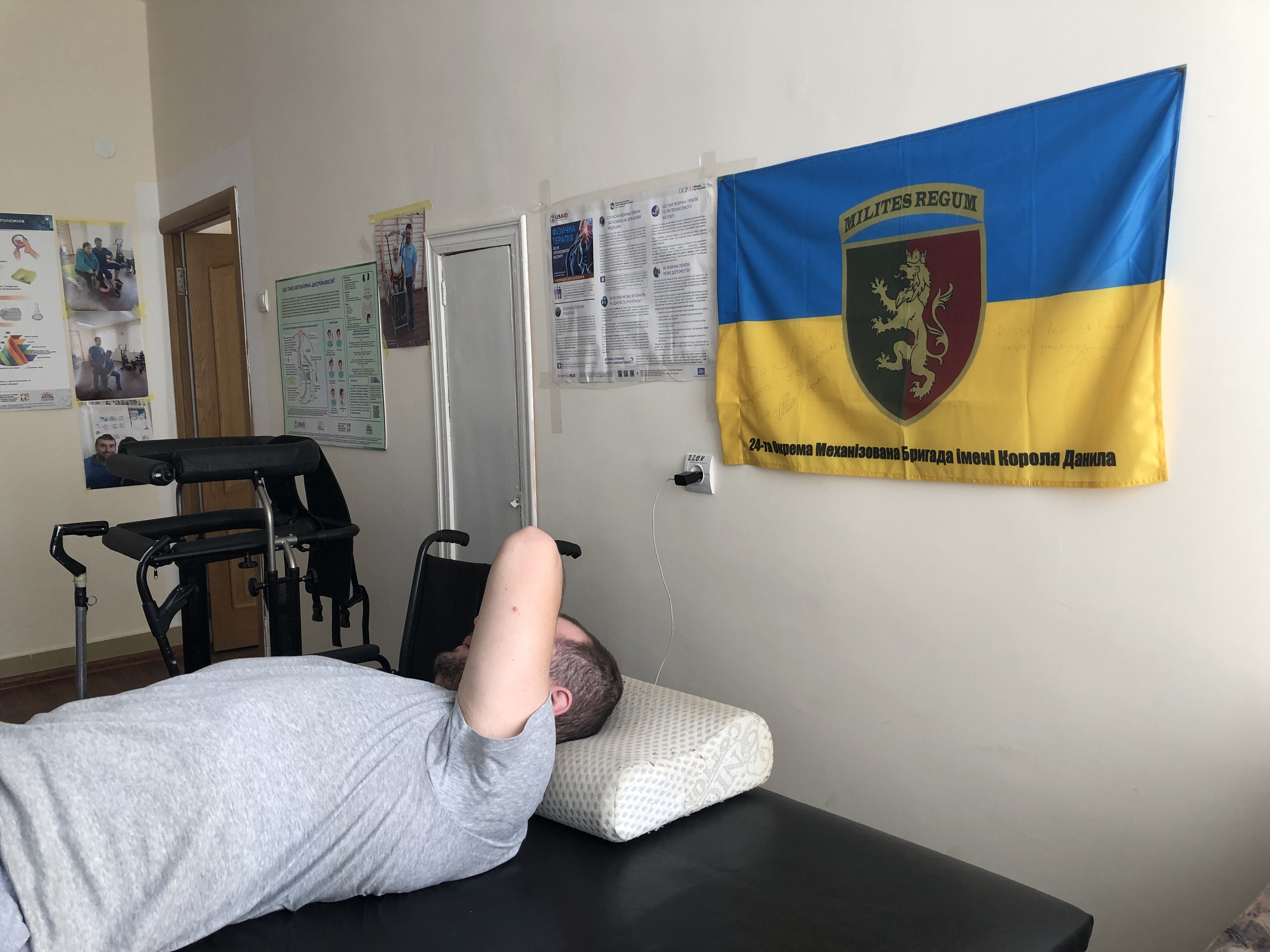
Vladyslav’s eagerness to rejoin his comrades is tinged with anger. He was born and grew up in Luhansk. When, in 2014, pro-Russian unrest rippled across Donbas, as the regions of Luhansk and Donetsk are collectively known, his family fled northwest to Severodonetsk. “Our apartment was seized by separatists,” he says.
When Russia’s full-scale invasion began on February 24, his family was forced to abandon Severodonetsk and seek refuge in the capital Kyiv.
After months in hospital, Vladyslav says it is unthinkable for him to give up on the war effort. “Of course, I want to go back to the front line,” he laughs. “I’m a very good tank driver. Some people decide to leave the country and not defend it, but I was not raised in this way.”
For now, the hospital is unable to ascertain how long Vladyslav’s recovery will take, or if he will regain the use of his legs.
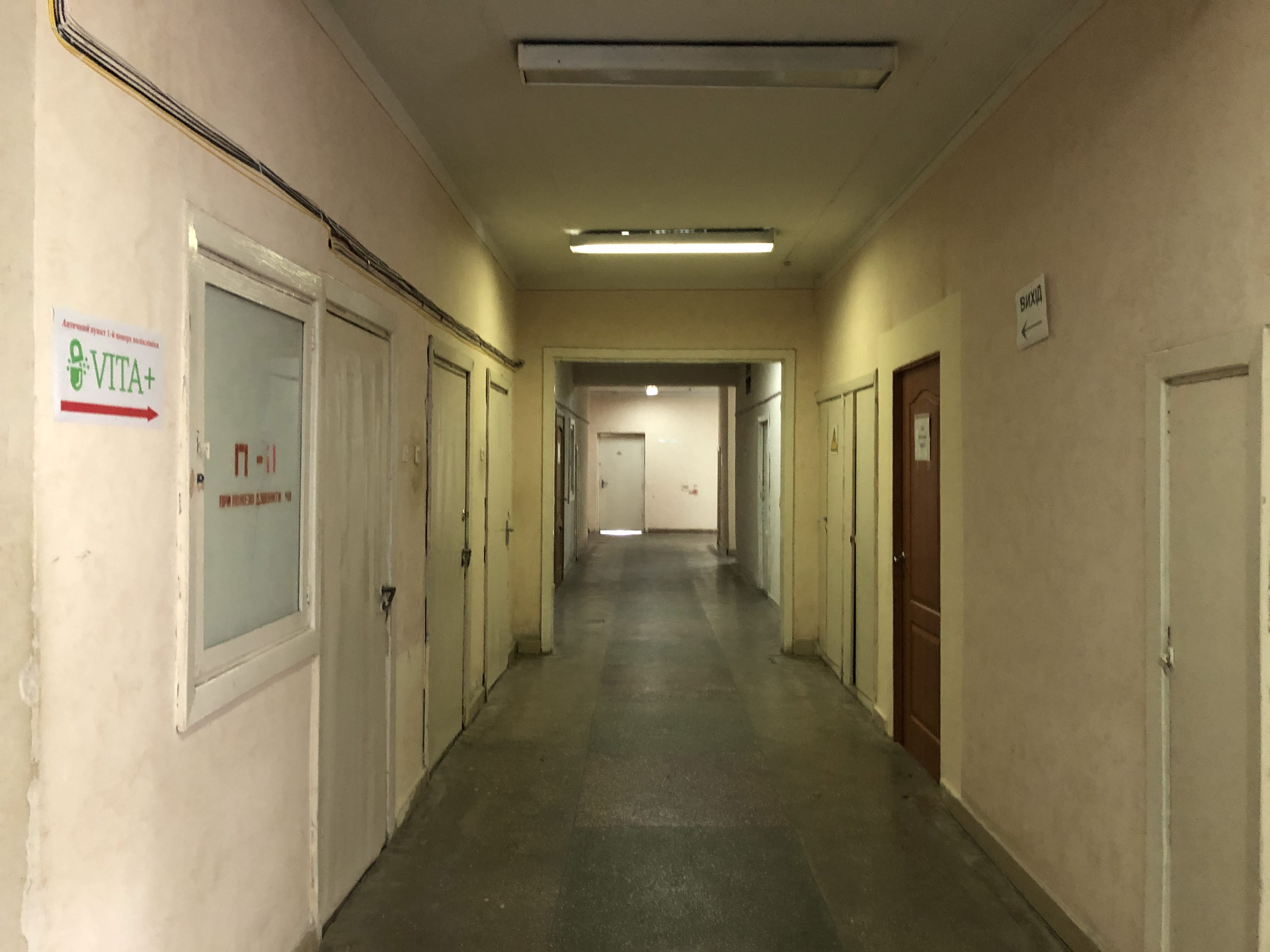
Race to heal soldiers
As the war nears its seventh month, the experiences of injured soldiers like Vladyslav paint a picture of the brutal consequences of prolonged fighting as injuries and deaths rise rapidly amidst widespread exhaustion.
In the relative safety of western Ukraine, hospitals are struggling to treat hundreds of soldiers like Vladyslav. Many of these soldiers have suffered critical wounds and are not physically or mentally ready to return to the front line, but feel an immense need to do so.
Medical staff are racing against the clock to heal those who – once deemed fit – will return to the front lines.
Ukraine was initially outnumbered seven to one in terms of soldiers at the beginning of the war. But with a powerful boost from weapons and equipment supplied by 28 countries, since September, its military has launched an unexpectedly rapid counter-offensive that reclaimed key cities in the east and south of the country, including in the Kharkiv and Kherson regions. Still, experts predict the war will stretch into next year.
The latest official figures from Ukraine report that 9,000 soldiers have been killed in action since the beginning of the war, and government estimates from early June stated that some 100 to 200 are killed every day, with a further 500 wounded in action.
At the hospital where Vladyslav is receiving treatment, many of the common areas are dark and the odd indoor plant droops on the wall. Where there are windows, natural light filters in weakly through lace curtains.
But the walk up to the office of 35-year-old Volodymyr Lykhach is well-lit, with a bright painting of Jesus framed by fairy lights hanging at the end of the corridor.
Originally trained as a psychologist with a private practice, Lykhach decided to take on a role at the state-run hospital when the war started, correctly anticipating that mental health services for military personnel would soon be overwhelmed. “We weren’t prepared for this sort of work,” he says.
“Everything I and my colleagues knew was about how to rehabilitate people after the war. What we’re seeing now is completely different.”
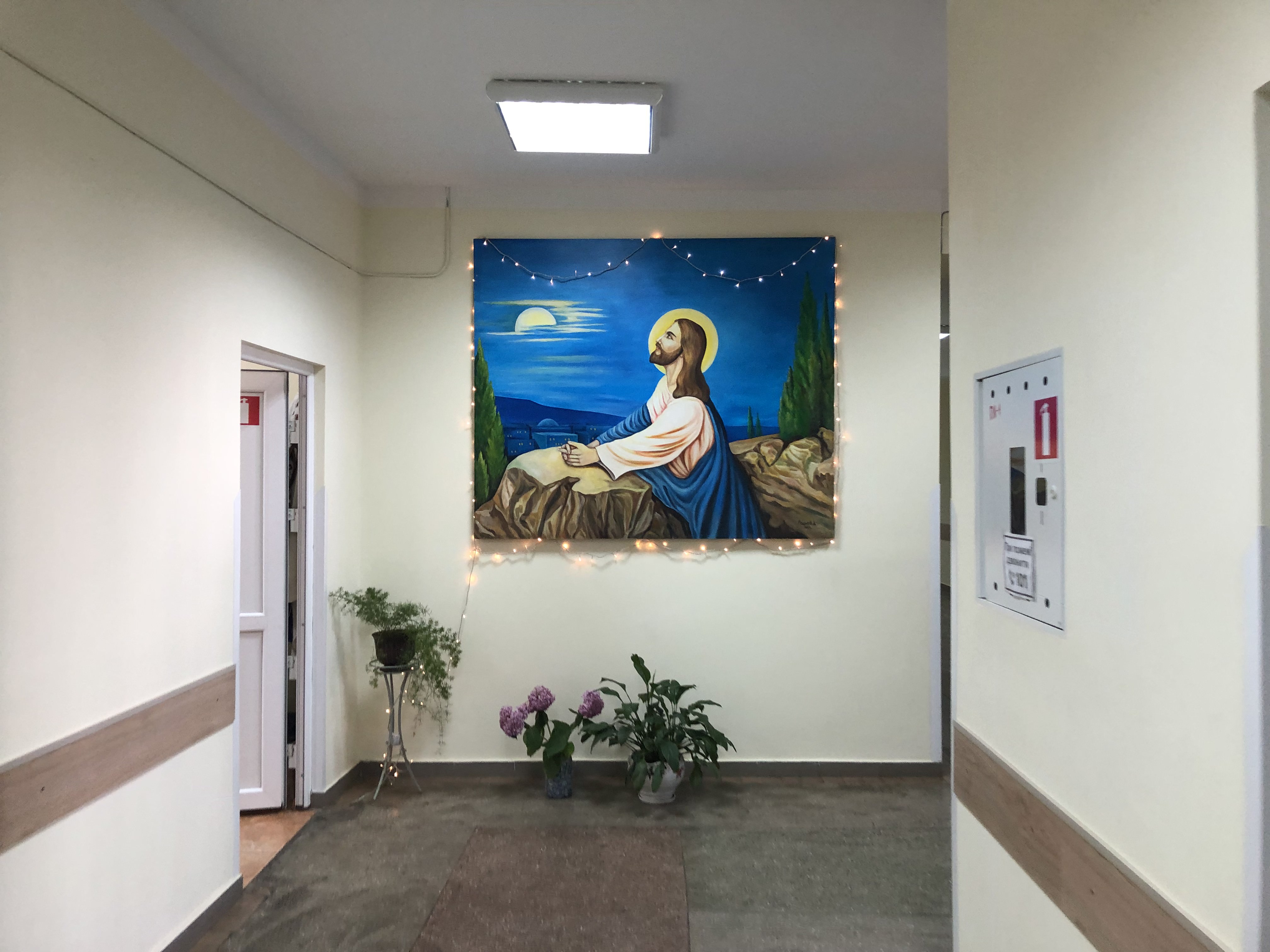
‘Help them endure’
Lykhach makes his rounds in a short-sleeved white doctor’s jacket. A gentle man who speaks thoughtfully, his earnest eyes framed by black glasses, Lykhach knows that the task at hand is becoming more daunting – and critical – as the war shows no sign of ending. The number of his patients fluctuates constantly as they return to the front line or to their hometowns, but he says he averages about 10 to 12 consultations a week, sometimes several will be with the same soldiers. These consultations include strategies aimed at helping soldiers manage trauma.
The nature of new admissions to the hospital is also changing with the use of deadlier, long-range weapons on military and supply bases, ostensibly in response to Ukraine receiving more military aid from allies. “In the beginning, there were many more internally displaced civilians here. Now we get mostly active soldiers,” he says, noting that he has been seeing more cases of severe head injuries.
Some of those patients, Lykhach says, can take four months to recover, while others need a year or more. “We are trying to protect people,” Lykhach says. “But this is a mass war with a huge front line, not a local conflict. There may be errors.”
He does not know how many of the soldiers he has treated have returned to war.
The dilemma he struggles with the most is the need to prioritise the interests of the state while caring for an individual. “This war is about our survival. There are people who are not motivated to fight, but they need to. They say that they don’t want to see the things they saw any more. But our main job is to help them endure. I’m trying my best to prevent lasting trauma, and to give them the ability to care for themselves,” Lykhach says.
According to Taras Klofa, a recently-retired colonel and military doctor in Lviv who has treated soldiers with severe injuries since the conflict in Donbas began in 2014, it is “by order of the Ministry of Defense” that injured service members must return to combat if they are deemed to have sufficiently recovered and “capable to serve”.
“We have many soldiers who have very serious disabilities sustained through war, like blindness – and even though they can’t go to the front line, they’re still keen to serve in other ways, and often it is still possible,” Klofa explains.
The Armed Forces of Ukraine said in an email that it was unable to comment at this time on its current protocol for returning injured soldiers who have recovered back to the front line.
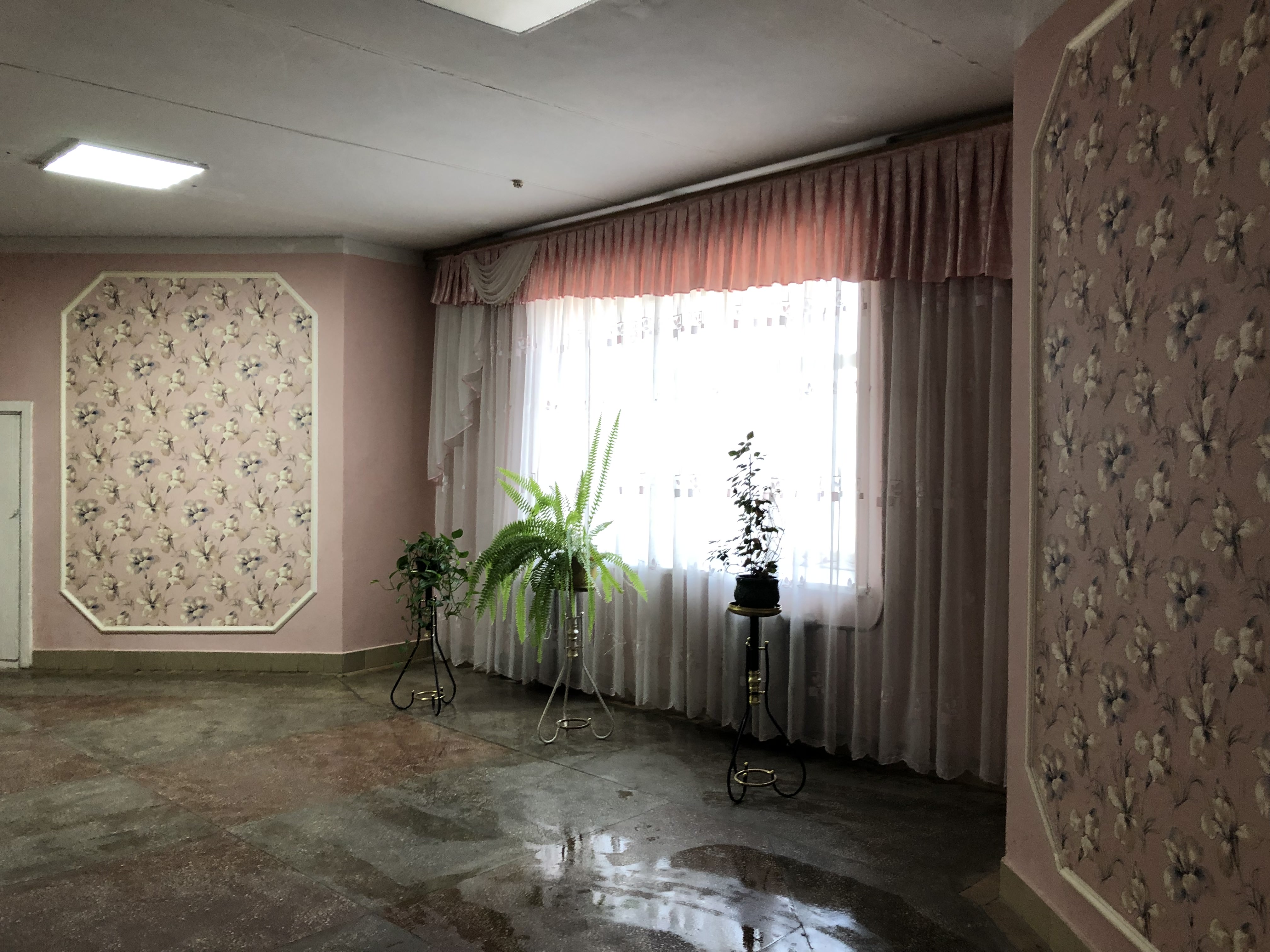
All injured soldiers must be cleared by a medical military commission. It decides if a soldier is fit to return to war, needs to be discharged from service due to their injuries, or requires additional leave or treatment.
Some soldiers are determined to back to the front line, regardless of what the commission thinks. “I had a patient who recovered from a severe head injury,” says Lykhach, referring to a soldier who was treated for three months. “They [the army] wanted to write him off, but somehow he recovered and went back to fight.”
He is painfully aware that the pressure to win the war means that his patients’ time for convalescence has a limit. “What we’re doing now usually takes much longer, but we can’t afford to wait. My job is to stabilise their mental condition so they’re able to go back. Full therapy has to come after victory.”
Without a blueprint for how to deal with scores of fatigued soldiers grappling with post-traumatic stress disorder (PTSD), Lykhach and his colleagues have had to consult psychologists from other countries who worked in similar contexts.
Some of the injured soldiers at this hospital may never fully recover.
Lykhach vividly remembers an officer who had both his legs amputated but was determined to go back to war immediately, despite not having prosthetic legs properly fitted yet. “He said, ‘My men are waiting for me’,” Lykhach recounts. “I just started crying.”
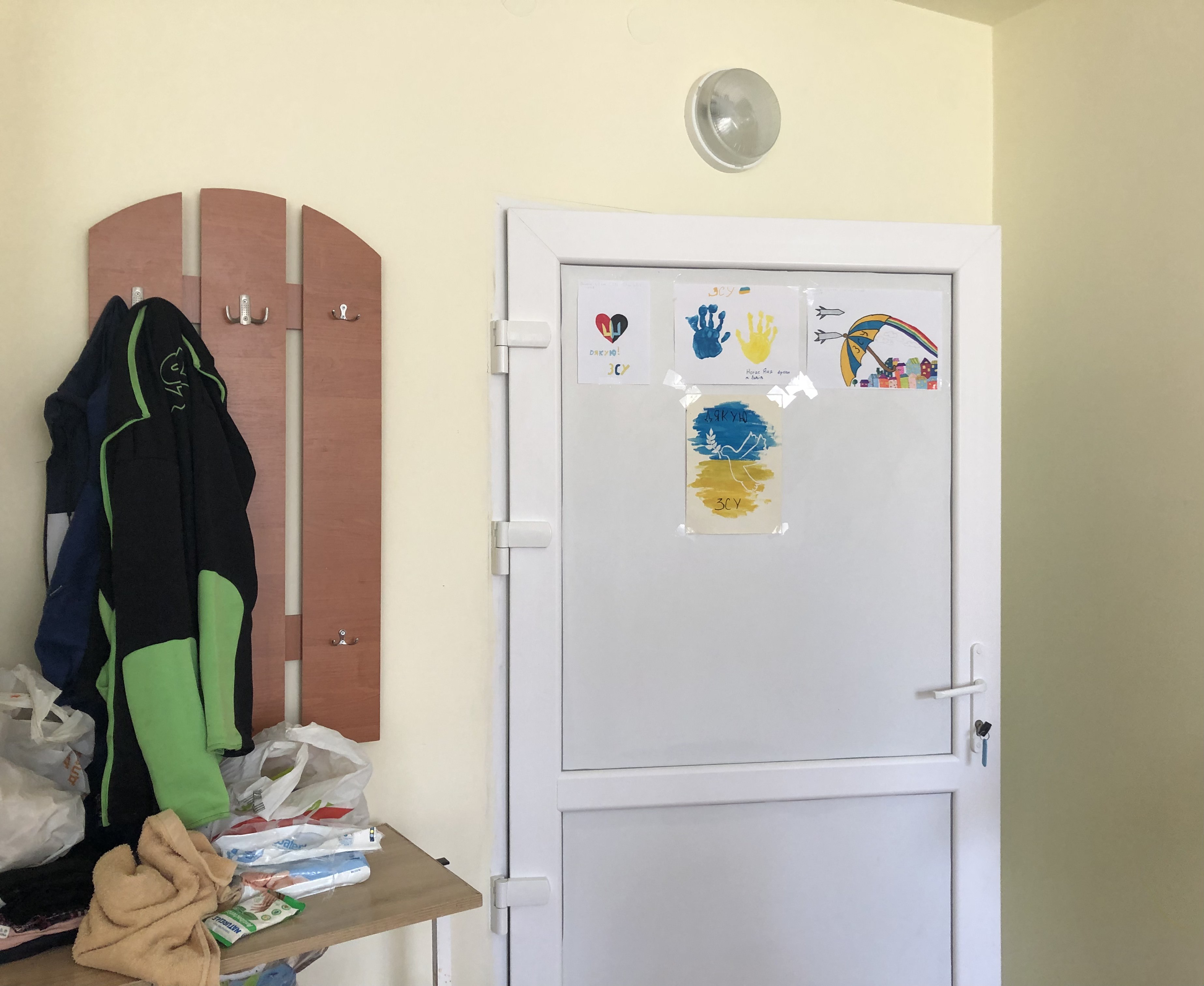
‘First I need to live’
According to Klofa and Lykhach, the most difficult patients to treat are those who have head and spinal cord injuries. These injuries are complex, rehabilitation often takes a long time, and many will be living with a disability or unlikely to be able to return to their previous life.
Yehor*, who is originally from Shostka, a city in the northeastern Ukrainian region of Sumy, is in hospital with a spinal cord injury. Speaking from his bed with his mother by his side, the 30-year-old’s features are gaunt. As he talks, his body is regularly seized by violent convulsions. Lykhach explains later that this is a symptom of muscle spasticity, a result of his serious back injuries.
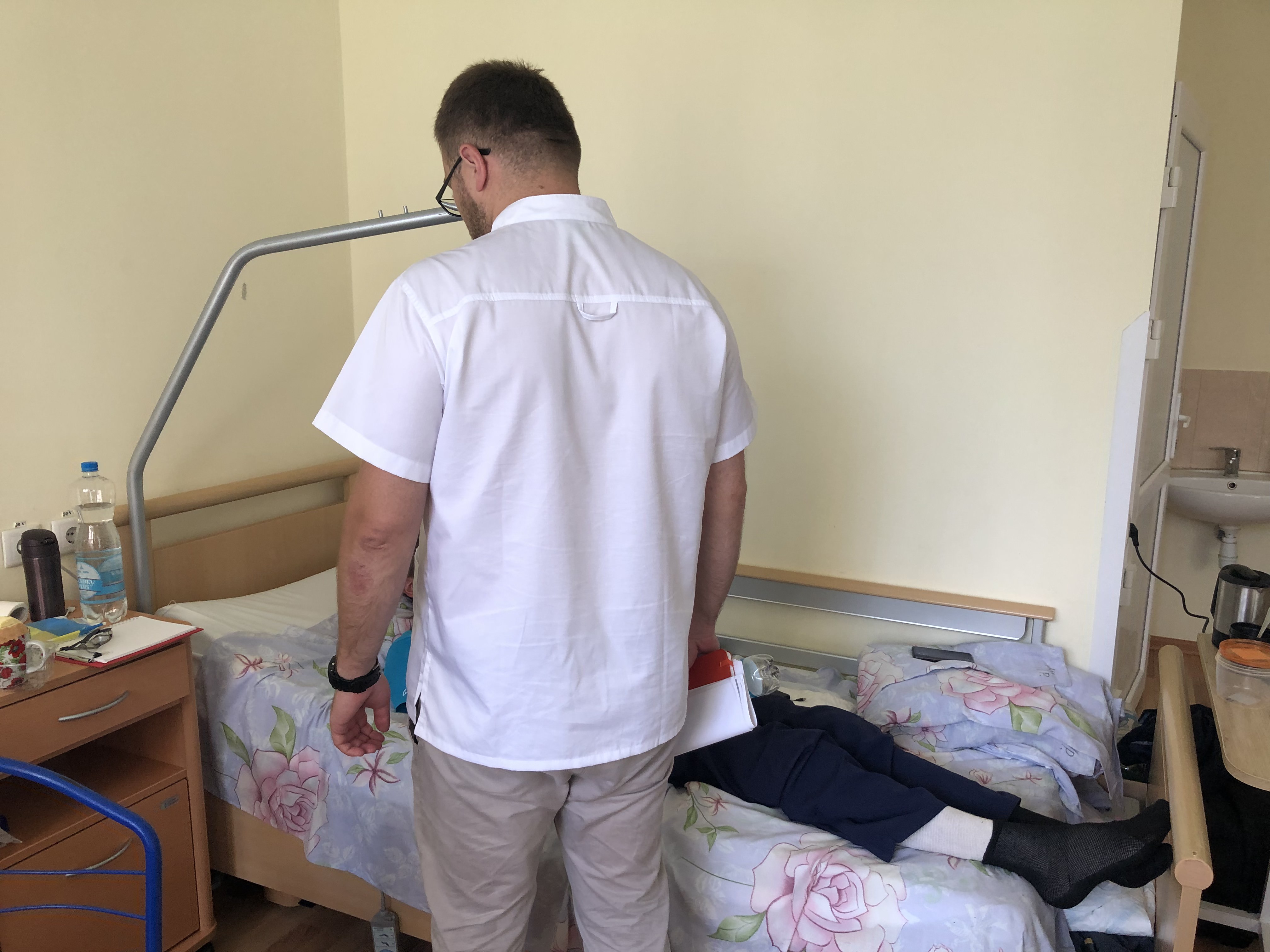
Yehor always wanted to be a cook. But upon graduating from culinary school in 2010, he had a change of heart and decided to follow in the footsteps of his father and uncle, retraining as a soldier in Sumy, close to the Russian border. From 2015, following the annexation of Crimea, he served as a junior sergeant in the army fighting pro-Russian armed separatists in Donbas.
Having been deployed to Chernihiv in February, Yehor was initially elated when Ukrainian forces were able to push the Russians back. But this feeling was short-lived. He was next sent to Popasna, a small city in Donbas that is currently part of the breakaway self-styled Luhansk People’s Republic and currently under Russian control. There he was assigned to an infantry division that had little artillery left.
“We were attacked by the Russians again and again. A lot of us were killed,” he says. His slim, wan face betrays little expression. His body starts convulsing again.
On one occasion, Yehor’s infantry tried to escape the shelling in Popasna by running into a forested area – but the foliage was sparse and they had nowhere to hide. He thinks the Russian forces spotted them using a drone. Two soldiers died in the shelling, and more had to be evacuated due to their injuries. Yehor escaped into a part of the forest with more cover, but he and a few others were instructed by their commander to return to the site of the attack to retrieve some much-needed weapons.
This time, Yehor was injured when the Russians rained bombs down on them again. “I was rushed to Dnipro for surgery,” he says, referring to the southeast Ukrainian city that is a humanitarian hub. When Al Jazeera met him, he had been in Lviv for a month. A physiotherapist has been helping him to sit up in his wheelchair.
When asked if he hopes to return to war, a look of discomfort comes over Yehor’s face. “My desire is first to recover and to go home,” he says. “Then I want to see the members of my unit who survived. They’re like my family. We’re going to go fishing together. As for going back to the front … first I need to live. Then we will see.”

Wanting to ‘protect our country’
If those conscripted into the Ukrainian army are running low on weapons and supplies, then the volunteer militias of the Territorial Defence Forces have had to make do with even less.
A few doors down from Yehor’s room is 42-year-old Dmytro, a mortar sheller in the territorial defence unit for Sloviansk, in Donetsk. He had been digging in a trench for two days when an explosive fell near him. Like the other two men, he is recovering from a head injury, and still has two pieces of shrapnel in his head. His arm is in a sling, but he is able to hobble around and is otherwise in fairly good spirits.
Dmytro found the territorial defence unit to be woefully lacking in every way. “They were just aiming for quantity of [people]. I only got weapons three months after I joined,” he says, adding that he had a gun, but no body armour. Even the people who were training him – volunteers from around Donetsk – had no combat experience, he says.
Nevertheless, he praises the unit for their shared bravery. “We are all like-minded people who just want to protect our country.”
Today, Dmytro is still in touch with the men he served with, but some have left to join another better-armed unit in Kharkiv.
For Dmytro, the opportunity to have proven himself as a soldier, even if a volunteer, is bittersweet. A former electrician, he left his home city of Horlivka in Donetsk in 2014, unwilling to live with the daily realities of Russian aggression. He tried, unsuccessfully, to join the armed forces. He speculates that this is because he was from a Russian-speaking region, and there might have been suspicions about where his loyalties lay. The invasion gave him yet another impetus to offer his services to the Ukrainian defence. “I just couldn’t tolerate it any longer,” he says.
Returning to the front
Dmytro’s wife is with him in Lviv, but he hasn’t seen his mother since November. She would like to leave Horlivka, but can’t because the only evacuation route offered is through Russia. He has kept her in the dark about his injuries, only telling her on the phone that he has been sick but is now on the mend. Thinking ahead to the future, he says, “First, I wish for victory. Secondly, I want to see my mother again. But I don’t think I can ever go home again. Not even if it’s back under Ukrainian control.” His eyes shine with tears. As soon as he gets the green light from the hospital, he intends to return to the front.
Days after meeting with Al Jazeera, Dmytro, who was deemed to have made good progress with his recovery, was transferred to another hospital. “He feels much better, but he still needs a long time to heal,” Lykhach says.
The psychological toll of the war is felt not only by the soldiers being patched up to be sent back to the front line but also by doctors like Lykhach.
“I’m seeing a therapist too, and it’s good to have collegial support,” he says with a sad smile. “If I can’t even support myself, how can I help these people?” He has also begun placing a bigger emphasis on little daily rituals that lift his spirits, from meditating to spending time with his family.
“I’m also reading more poetry now,” he adds. One of his recent favourites is the Ukrainian translation of If, written by the poet Rudyard Kipling as a form of paternal advice to his son John. Kipling died without ever knowing what happened to John, who vanished while fighting in World War I. Devastated, he never wrote directly about his bereavement but continued composing jingoistic war poetry, which gradually lost favour with the younger generation as they found his vision of British imperialism hard to stomach. For the rest of his life, he would be consumed with regret: it was he who had pulled strings to have John join the army after he had been rejected twice on account of his poor eyesight.
As for Vladyslav, who is itching to rejoin his battalion on the front, he hopes to recover soon. “For the moment, I can’t do anything. But I will once I can.”
*For safety reasons, only first names have been used







